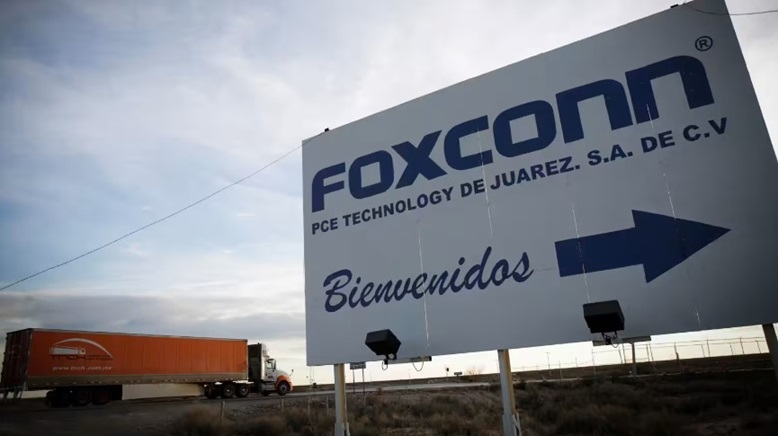In a game-changing announcement, Foxconn has unveiled plans to construct the world’s largest manufacturing facility dedicated to bundling Nvidia’s GB200 superchips, a critical component for the cutting-edge Blackwell computing platform. Senior executives from the Taiwanese powerhouse, recognized primarily as the leading assembler of Apple’s iPhones, highlighted the significance of this project during their annual tech day in Taipei. Benjamin Ting, Foxconn’s senior vice president for cloud enterprise solutions, emphasized the monumental scale of the facility, stating, “We’re building the largest GB200 production facility on the planet.” This ambitious venture positions Foxconn at the heart of the booming artificial intelligence sector, where demand for server solutions continues to surge.
Nvidia’s recent strides in AI have created a ripple effect across the tech industry, with the company announcing that it has begun shipping samples of its revamped Blackwell chips. The projected revenue from these superchips is staggering, with Nvidia expecting to reap billions in the fourth quarter alone. At the Taipei event, Ting underscored the strategic partnership between Foxconn and Nvidia, noting the overwhelming interest in the Blackwell platform. “The demand is awfully huge,” he remarked, reflecting a sentiment echoed by Nvidia’s vice president for AI and robotics, Deepu Talla, who stood alongside him, symbolizing the collaborative spirit fueling innovation in the sector.
Chairman Young Liu shed light on the logistics of the project, revealing that the new plant would be based in Mexico, a country where Foxconn has already invested heavily, amassing over $500 million in the state of Chihuahua. Liu hinted at the facility’s vast capacity without disclosing specific figures, sparking curiosity about its potential impact on the global supply chain for AI technologies. He further elaborated on Foxconn’s readiness to embrace the AI revolution, highlighting advanced manufacturing capabilities, including cutting-edge liquid cooling and heat dissipation technologies essential for optimizing the GB200 servers’ performance.
Foxconn’s aspirations extend beyond AI; the company is diligently working to diversify its portfolio beyond assembling consumer electronics. Liu is optimistic about the electric vehicle (EV) market, stating that the “engine barrier” to manufacturing has diminished, allowing automakers to pivot towards partnerships rather than relying solely on in-house production. Despite acknowledging the fierce competition in the EV space, Liu reaffirmed Foxconn’s commitment to innovation and growth in this dynamic landscape. As the company charts its course through the evolving tech terrain, the stakes couldn’t be higher, and Foxconn is poised to play a pivotal role in shaping the future of AI and electric mobility.
(Source: Taipei Times | TipRanks | Barron’s)









